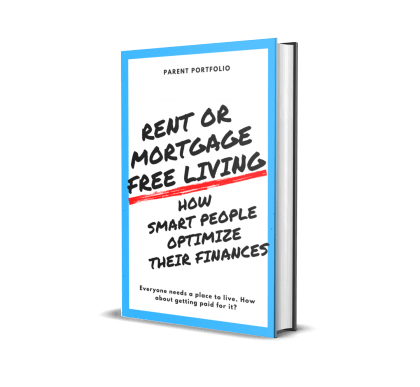Financial Literacy: The Earlier You Learn, The Better

If you’re like most people, you’ve probably said this phrase a lot, putting off caring about finances until later. I’m here to tell you that you can’t wait until later. The best time to learn about financial literacy is now!
How many times have you thought to yourself, “I don’t need to worry about my finances yet? I’ll wait until I (insert life milestone.)” This life milestone could be graduating from college or buying a house, or making a certain amount of money per year.
Even though I’m relatively young and inexperienced, I’ve noticed that the education system doesn’t teach you about personal finance. Not in kindergarten, not in elementary school, not in high school, not even at Harvard!
The education system doesn’t teach us about money, which is why it’s so essential to develop your financial literacy as soon as possible!
What is Financial Literacy?
Investopedia defines financial literacy as the “ability to understand and effectively use various financial skills, including personal financial management, budgeting, and investing.”
Financial literacy is the ability to manage our own financial lives in a sustainable and wealth-generating way. Financial literacy includes topics such as:
- Taxes
- Budgeting
- Build an emergency fund
- Saving Money
- Investing Money
- Retirement planning
- Credit cards
These topics may seem simple on the surface but are crucial to financial success and fiscal responsibility. Too many people underestimate the power of good financial literacy and live their lives paycheck to paycheck, always hovering above broke.
The importance of financial literacy is that it can set you free. The more financially literate you are, the higher the chance that you can break free of the “rat race” and live the life you want!
The Schools are Broken
The schools don’t teach you anything about money. I remember trying to learn about money with other high school students and failing.
I took three years of accounting, four years of math, one year of law, and got nothing about managing my finances. They were not teaching financial literacy!
What use is knowing that debits are on the left and credits are right if I don’t even know what a credit card is?
Why is this? Why don’t schools educate us about finances when money is the one thing that almost everyone has to deal with? I have a theory based on a few premises:
- Financial literacy skills equal earlier financial freedom.
- Earlier financial freedom equals optional work.
- Society loves productivity.
- Society THINKS that work equals productivity.
- Optional work equals optional “productivity.”
- Society doesn’t want that, so it doesn’t teach you about financial freedom.
Society and the economy LOVE if you are trapped in the “rat race” and work for the rest of your life paying off debt. It helps the government, boosts the economy, and pays the central banks.
For these reasons, schools don’t teach you to be financially literate. They want you never to be free and work for as long as they can make you.
Instead, the system should require high school students to learn how to use a credit card, run a free credit report, and even take advantage of credit card offers.
Financial literacy sets you free and benefits you but not the system. The system broke the school system, which why it’s up to you to educate yourself!
Critical Topics in Financial Literacy
Now that you know the importance of financial literacy, it’s time to learn more about it now. But where to start? What to first learn? Who to ask?
Below I’ve compiled a good starting list of topics and sub-topics. If you’re interested in becoming financially literate, here are a few great places to get started.
Making Money (income)
Making money is something that all of us need to do, so it’s essential to learn how to maximize our income. A few things to know about are:
- Finding income opportunities
- Interviewing skills
- Starting a side hustle
- Taking on more responsibility (promotions)
- Networking
Growing Money (saving/investing)
Once you’ve made some money, it’s time to make your money work for you. The best way to do this is to save up your money and invest it in assets! In 52-weeks, it’s possible to save up $5,000.
Assets are things that pay you to own them, and they are the key to financial success. A few things to learn about are:
- Setting up an automatic savings plan
- Real estate investing
- Stock investing
- Vending machine investing
- Starting a business
Managing Money (budgeting)
With money flowing all over the place, it’s crucial to manage it effectively, which is why budgeting comes in handy. A budget is a financial plan for your future. It is the key to staying on top of your finances.
A few things to learn about are:
- Tracking your income/expenses
- Tracking student loan payments
- Making monthly financial estimates
- Understanding checking account and savings account statements
- Excel spreadsheets
- Money allocation
- Basic accounting
Owing Money (debt)
The United States consumer debt is at $14.3 trillion as of this post’s publication. It’s no wonder that SO many people aren’t financially free.
The truth about debt is that it’s neither good nor bad. It’s merely a tool that you can use either to ruin yourself or to set you free. A few things to learn about are:
- Loans, credit cards
- A high credit score
- Student loan debt, credit card debt
- Unexpected medical bills
- Highest interest rate, best interest rates
- Compound interest
Keeping Money (taxes)
One of the only two constants in life is taxes. Love them or hate them, they are part of your life and can eat away at your wealth if you let it. Keeping more of your money is key to financial literacy.
A few things to learn about are:
- Deductions
- IRAs, Roth IRAs, 401ks (TFSAs and RRSPs if you’re in Canada)
- 1031 Exchange
- Capital gains tax
- Financial advisors
- HSAs
Where to Learn More About Financial Literacy
The fact that you are reading this right now is a great start. There are so many great resources out there, and everyone can derive a lot of value. Here’s where you can learn more about financial literacy:
Blogs
Blogs like Parent Portfolio are a great place to learn about financial literacy at your own pace. The internet is full of knowledgeable people who have achieved financial freedom and are willing to share.
I also run a personal finance blog Financial Pupil, where I share everything I’m learning on my journey to financial freedom. Feel free to check it out! Let us know your thoughts about financial literacy in the comments!
Podcast
Podcasts are another alternative packed with tons of great info. From Bigger Pockets to We Study Billionaires, there are podcasts on almost any finance topic. You’re sure to find one you like which you can enjoy, to and from work or in your spare time.
Reddit is a community full of all sorts of people, including ones that care about personal finance. It is a great place to meet like-minded people and join a group that will motivate you to start setting financial goals while educating you along the way.
Books
Books are the source of financial literacy education, such as Rich Dad Poor Dad and Think and Grow Rich are sure to expand your knowledge and help you reach your personal finance goals.
Start Learning Now!
Being financially literate is the first step towards building long term wealth and escaping the rat race. The school system and society don’t want you to learn about personal finances, so it’s up to you to educate yourself!
Currently, 17 states require high school students to learn about personal finance. Sadly, I was not one of the fortunate.
I would have been satisfied with a financial literacy guide, education on the credit monitoring service from the three major credit bureaus, or practice a financial literacy month doing money-saving challenges.
Financial education should be one of your life goals. Make a plan every week to improve your financial situation and make better financial decisions.
In this post, you learned about the importance of personal finance, some key topics to help you get started, and some resources you can start checking out.
So what are you waiting for? Start building your financial literacy now! Your future financially free self will thank you.






